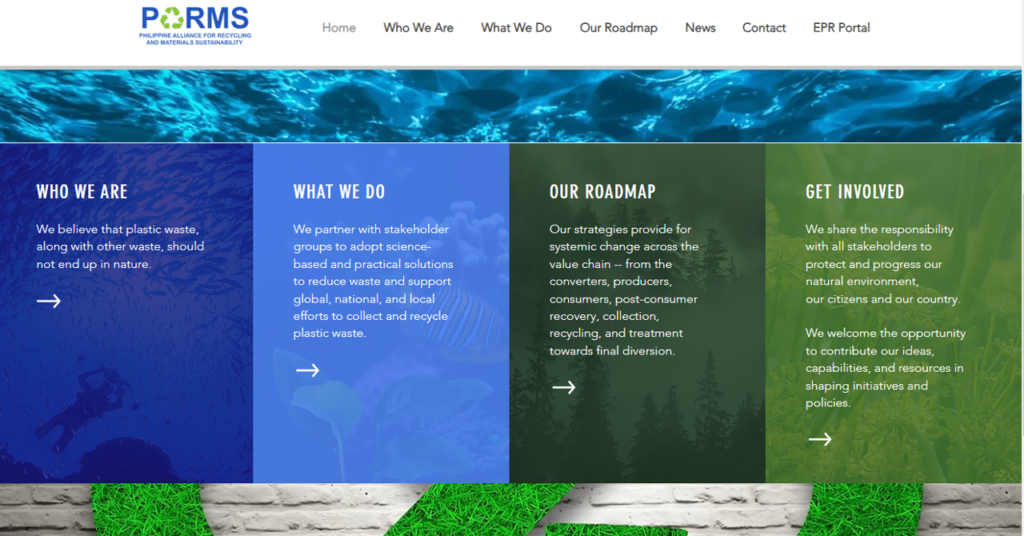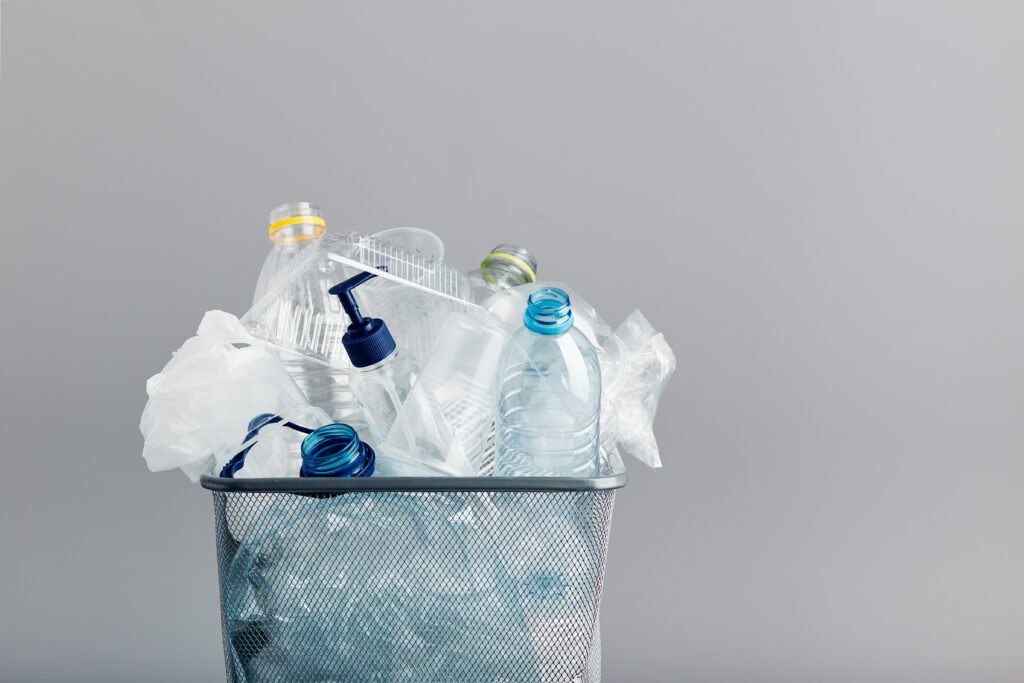The Philippine Extended Producer Responsibility Act, or EPR Act, of 2022 has lapsed into law on July 23, 2022. This law requires large-scale companies to establish programs and strategies on how to responsibly and effectively recover, treat, recycle, and dispose the plastics they sell and provide to the consumers. To have more insight on the Philippine EPR Act, EnviX has interviewed the Philippine Alliance for Recycling and Material Sustainability, or PARMS, on June 16, 2023.
What is PARMS?
PARMS is a Producer Responsibility Organization, or PRO, in the Philippines that promotes zero waste by 2030 and has set EPR programs to help companies envision responsible plastic recovery, recycling, and disposal strategies to align with the goals of the EPR Act. PARMS contributed to the development of the EPR Act by writing a position paper from the inputs and recommendations of different enterprises and submitted it to DENR before the implementation of the EPR Act. Multiple points by PARMS were included in the current IRR of the EPR Act.

PARMS homepage
https://www.parms.com.ph/
The following are the information provided by PARMS in the interview with EnviX to assist enterprises on their journey to zero plastic waste.
Q. Are the waste diverters collaborating with PARMS exclusive to PARMS?
No, the waste diverters collaborating with PARMS are not exclusive to them and the enterprises can opt to directly collaborate with waste diverters. PARMS have set up a platform on their website to help streamline the selling and purchase process. Currently, PARMS receives no commissions and the payment for the plastic credits goes directly to the waste diverters. PARMS collaborates with the waste diverters to set up bulk buying programs to offer better prices to their members.
Q. How many and what kind of companies are currently participating in PARMS’ EPR program?
As of June 2023, about 190 obliged enterprises (OE) and more than 200 small and medium enterprises are participating in PARMS’ EPR program. OE are required by the law to submit their plastic footprints to DENR and offset at least 20% on the first year of implementation of the EPR Act, while small and medium enterprises are not required to submit their plastic footprints to DENR but they can purchase plastic credits.
Q. Currently, how many PROs are in the Philippines?
As of June 2023, there are about 7 PROs in the Philippines. Different PROs have different EPR Programs. The deadline for submitting EPR Programs was on February 13, 2023, and a lot may have missed the deadline set by DENR.
Q. What are the challenges of developing EPR programs?
Developing EPR Programs are challenging for companies especially if they currently do not have established waste management procedures in their operations. PARMS is willing to assist companies on this, and PARMS has strategies for both plastic waste recovery and reduction in their EPR program. If a company opts to create their own EPR Program, they may face difficulties due to time constraints as compiling the requirements for DENR may take a long time. Enterprises may form a collective group, and the chosen leader of the group may face challenges as the leader will need to collate all the information of the companies. Since PARMS now has set procedures, collectives and individual enterprises may choose to join PARMS for a streamlined EPR program process. In addition, penalties of not complying with the EPR Act can cost enterprises a minimum of 5 million PHP and the cancellation of their business permits. Currently, a lot of companies are still unaware of EPR Act and may be penalized due to lack of awareness of the law.
Q. Are there guidelines from the government for companies on how to develop their own EPR Program?
DENR is scheduled to submit the process and guidelines of developing EPR Programs in September 2023. The process for certifying plastic waste footprints and plastic waste credits may be included in this manual. If there are big differences between the guidelines that will be posted by DENR and the current EPR Program guidelines of PARMS, PARMS will edit its guidelines and will finalize it by next year.
Q. Are there specific types of plastics exempted by the EPR Act?
According to Section 44-C of the EPR Act, plastics in business-to-business (B2B) transactions (e.g., plastics sold from factories to other companies) are not included in the plastic footprint calculation. Although, if a company sells biodegradable plastic, PARMS suggests to compute for that so the company can include it in their reduction program report in PARMS’ EPR portal. The biodegradable plastic must comply with the following PNS standards of the Department of Trade and Industry – Bureau of Philippine Standards (DTI-BPS).
- PNS 2092:2011
- PNS 2102:2013
- PNS 2104:2014
- PNS 2166:2022
- PNS ISO 17556:2022
- PNS ISO 20200:2022
- PNS ISO 10210:2022
- ISO 17088:2021/PNS 2102:2012
- ISO 16929:2021
It is also recommended by PARMS to acquire an Environmental Technology Verification (ETV) from the Department of Science and Technology – Industrial Technology Development Institute (DOST-ITDI) for the biodegradable plastics.
Q. How does PARMS view the EPR Act?
PARMS believes that the EPR Act can help improve the waste management practices of the Philippines. The Law can bring together businesses and help local governments to manage their plastic waste responsibly and sustainably. The purchase of plastic waste credits provides additional incentives to recycling companies to become more active in recycling plastics, especially flexibles. Currently, recycling flexibles are hard because there is not enough market to sell recycled flexibles. PARMS also believes that the EPR Act can help create about 4,000 “Green Jobs,” providing employment opportunities to the people of the Philippines. It is also estimated that about 15.1 billion PHP will be invested for new recycling and waste diversion facilities. The EPR Act can also support the waste recovery sector and local material recovery facilities as the EPR fees are estimated to generate an additional 5.2 billion PHP annual income. All in all, the EPR Act is beneficial to the growth of the Philippines and in the reduction of plastic waste in the environment.
To acquire more information about PARMS and its EPR program, kindly follow this link: https://www.parms.com.ph/
 Overview of the Philippine EPR Act: Interview with PARMS
Overview of the Philippine EPR Act: Interview with PARMS 

























